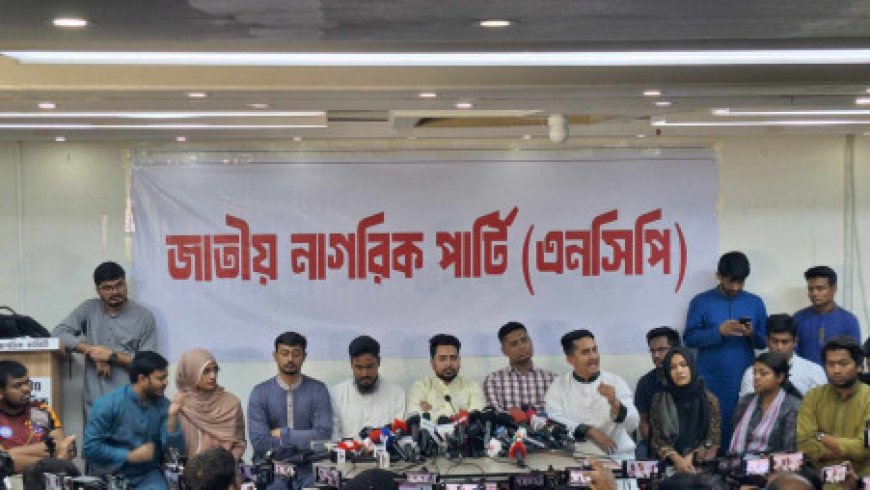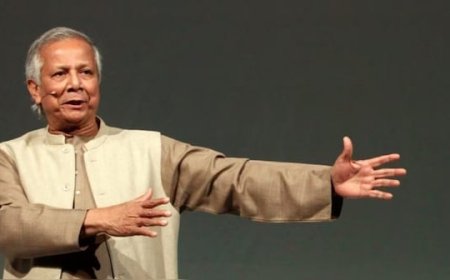NCP to hold discussions on reforms post-Eid
NCP to hold discussions on reforms post-Eid

NCP Engages in Election Campaigns During Eid, Plans Post-Eid Dialogue on Reforms
Leaders of the National Citizen’s Party (NCP) are actively engaged in election-focused campaigns within their local constituencies during the Eid-ul-Fitr holiday. Following Eid, the party intends to hold discussions with various stakeholders on proposed reforms. Additionally, NCP may launch a series of programs advocating for the trial of the Awami League, systemic reforms, and elections for a Constituent Assembly.
These plans have emerged from discussions with senior NCP leaders.
NCP’s Stance on Reforms and Awami League
The party, primarily composed of young political leaders, is concerned about the BNP’s position on reforms. Due to these concerns, NCP is prioritizing discussions on reform policies after Eid. The party’s Reform Coordination Committee will oversee these discussions at different levels.
NCP maintains a strict stance against allowing the Awami League to continue its political activities. However, instead of enforcing a ban through an executive order, the party seeks a judicial process to annul Awami League’s registration. Until the judicial process is completed, NCP advocates for suspending the party’s registration and restricting its political activities.
The party is also firmly opposed to any efforts aimed at rehabilitating the Awami League. Several NCP leaders have indicated that the cancellation of Awami League’s registration will be a key agenda in their political activities after Eid.
Differences Between BNP and NCP on Reforms
Both BNP and NCP submitted their official responses to reform proposals from five commissions, including constitutional reforms, to the National Consensus Commission on March 23. However, significant ideological differences exist between the two parties:
-
Constitutional Principles: BNP seeks to maintain the core principles of the constitution, while NCP advocates changes.
-
Parliamentary Term: BNP supports a five-year term, while NCP aligns with reform commission recommendations for a four-year term.
-
Leadership Separation: BNP opposes the idea that the head of a political party should not simultaneously serve as the leader of parliament, whereas NCP supports this separation.
Recently, BNP leaders have expressed reservations about reforms under an interim government. On March 28, BNP Standing Committee member Amir Khasru Mahmud Chowdhury stated in Chattogram that implementing reforms should be the responsibility of the future elected government, not an interim administration.
NCP leaders believe BNP’s resistance could hinder the reform process. However, to avoid direct confrontation with BNP, NCP prefers to pursue discussions with stakeholders to build consensus. Two senior NCP leaders confirmed that both formal and informal dialogues on reforms will take place after Eid, led by the party’s Reform Coordination Committee.
Post-Eid Political Agenda
After Eid, NCP will announce its manifesto and upcoming programs. The party will prioritize demands for:
-
Trial of Awami League for the July Genocide
-
Systemic Reforms
-
Constituent Assembly Elections
-
Cancellation of Awami League’s Registration
A senior NCP leader stated that post-Eid efforts will focus on strengthening party organization. This includes forming grassroots committees and establishing necessary offices to meet Election Commission (EC) registration requirements. The party aims to complete these organizational efforts within the next two months.
The NCP is also planning a series of rallies across districts and divisions to advocate for Awami League’s trial, reforms, and the Constituent Assembly elections. The party intends to involve families of July Uprising martyrs, injured individuals, NCP supporters, and the general public in these movements. However, specific programs will be finalized after Eid.
NCP’s Registration Challenge
On March 10, the EC issued a public notice inviting applications for new political party registrations by April 20. However, on March 16, Rastra Sanskar Andolan’s chief coordinator Hasnat Qayyum filed a writ petition challenging the notice’s validity. Following an initial hearing, the High Court temporarily suspended the notice’s enforcement—but only for the petitioner’s party.
As a newly formed party (launched on February 28), NCP faces challenges in meeting EC’s registration criteria, which require a central office, a district presence in one-third of administrative districts, and offices in at least 100 upazilas or metropolitan thanas. NCP leaders believe meeting these conditions by April 20 is impractical.
A senior NCP leader hinted that, like Rastra Sanskar Andolan, NCP may also take legal action regarding registration requirements after Eid.
What's Your Reaction?





















































































